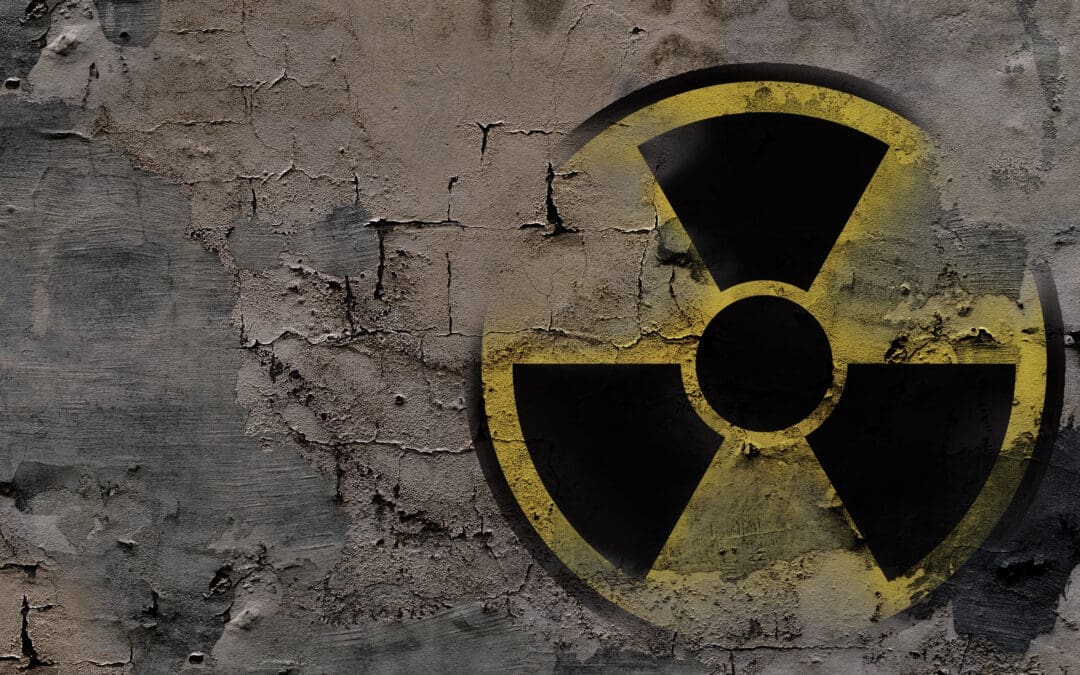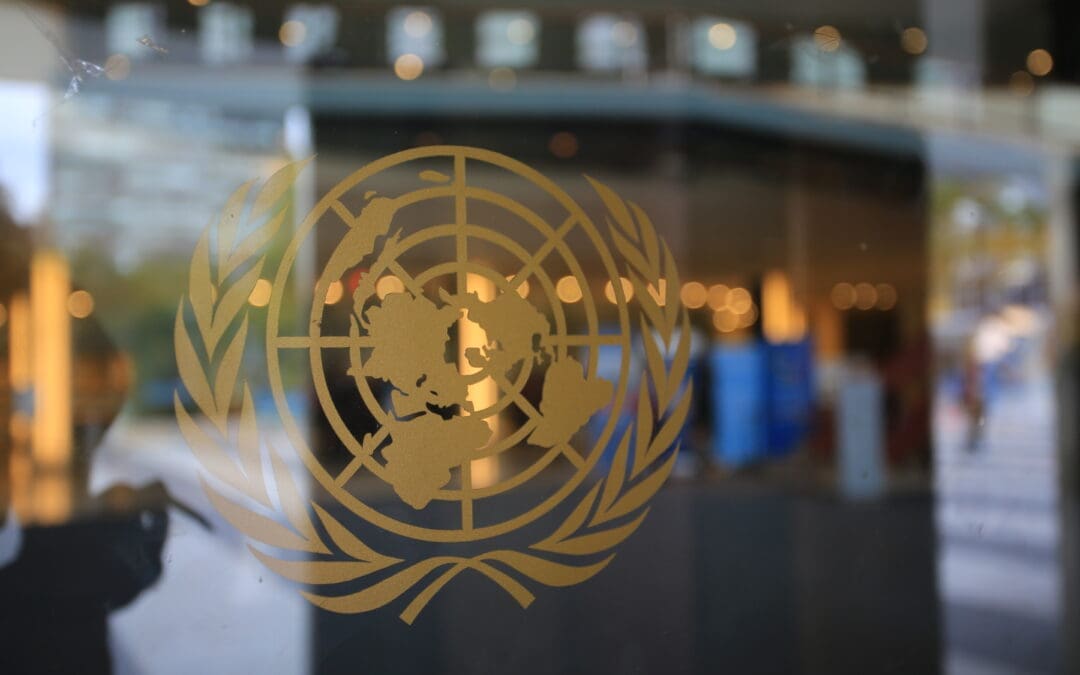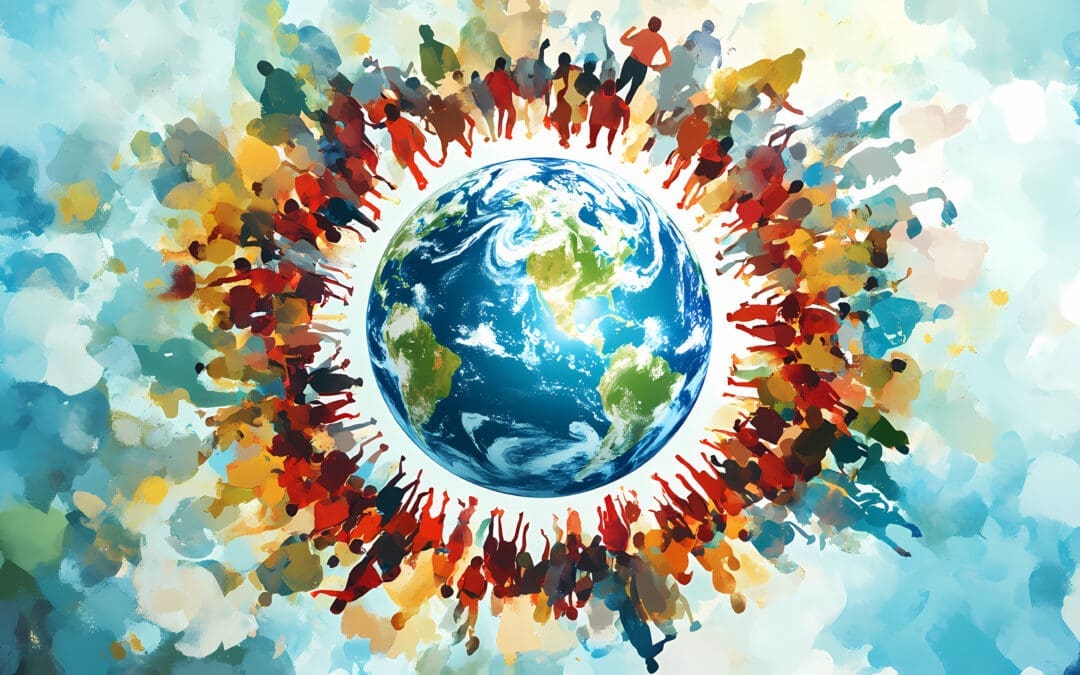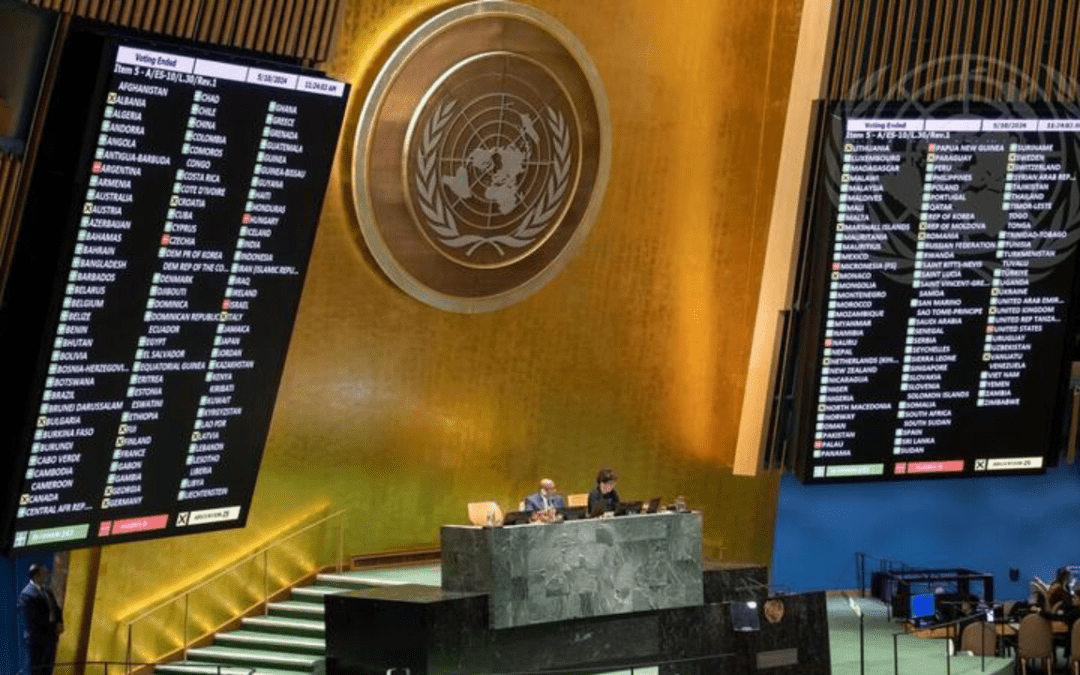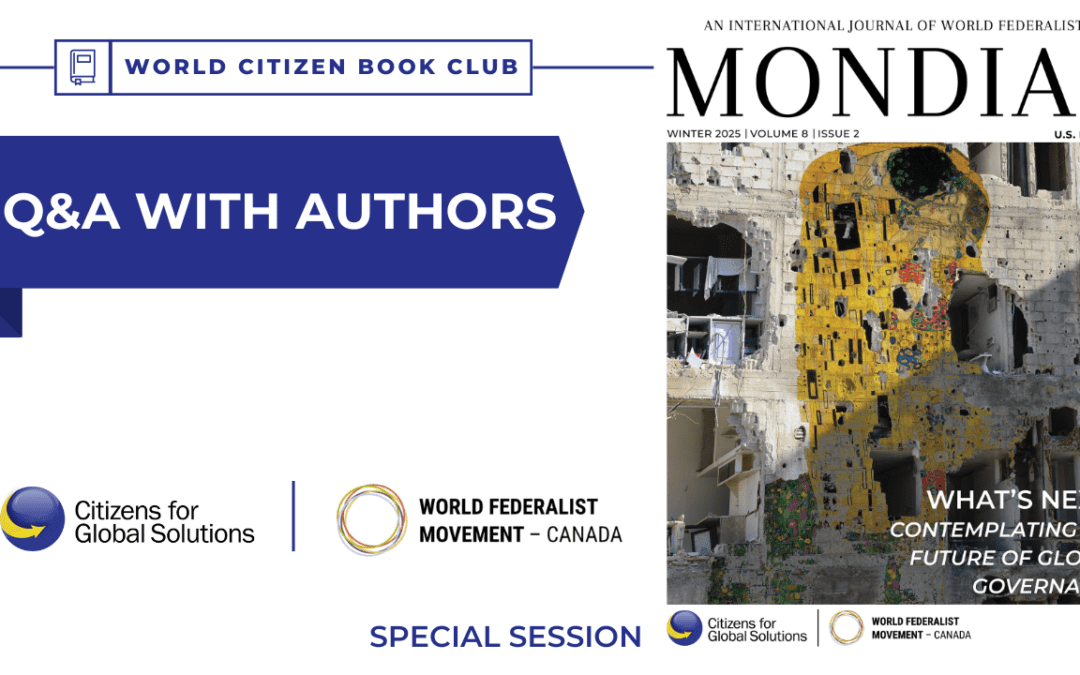
by Lawrence Wittner | Apr 7, 2025 | Disarmament
Amid growing international chaos, it should come as no surprise that nuclear dangers are increasing.
The latest indication is a rising interest among U.S. allies in enhancing their nuclear weapons capability. For many decades, remarkably few of them had been willing to build nuclear weapons―a result of popular opposition to nuclear weapons and nuclear war, progress on nuclear arms control and disarmament, and a belief that they remained secure under the U.S. nuclear umbrella. But, as revealed by a recent article in London’s Financial Times, Donald Trump’s public scorn for NATO allies and embrace of Vladimir Putin have raised fears of U.S. unreliability, thereby tipping the balance toward developing an expanded nuclear weapons capability.
This growing interest in nuclear weapons is especially noticeable in Europe, where Trump’s berating of NATO and Putin’s threats of nuclear attack are particularly unsettling. Although Friedrich Merz, Germany’s chancellor-in-waiting, dismissed any notion of Germany developing its own nuclear weapons, he has stated that it must explore “whether nuclear sharing, or at least nuclear security from the U.K. and France, could also apply to us.” Furthermore, several German think tank experts have floated the idea of building the infrastructure that, if necessary, could produce German nuclear weapons.
In Poland, too, a nuclear weapons capacity has become increasingly appealing. Prime Minister Donald Tusk has recently raised the idea of pursuing nuclear weapons or, at least, seeking an agreement for sharing France’s nuclear arsenal. A board director of PGZ, Poland’s state-controlled military manufacturer, remarked: “There are suddenly a lot of words and different opinions about what to do, but they all show Poland believes in stronger nuclear deterrence against Russia.”
In South Korea, North Korea’s nuclear weapons program and its growing military relationship with Russia, combined with Trump’s unreliability, have contributed to growing support for the nation’s acquiring its own nuclear weapons. Although neither of the two major parties has announced this policy, Cho Tae-yul, the foreign minister, informed parliament that acquiring nuclear weapons was “not off the table,” for “we must prepare for all scenarios.”
Similarly, the idea of developing nuclear weapons is drawing increasing scrutiny in Japan. Sharing South Korea’s fear of a North Korean attack and Trump’s unreliability, Japanese leaders also worry about China’s growing assertiveness. If a North Korean or Chinese nuclear strike occurred, Japan would have only five minutes of warning time. Moreover, thanks to its nuclear power plants, Japan already holds enough plutonium to build several thousand nuclear bombs.
In addition, of course, a nuclear arms race is well underway among the nuclear weapons-producing nations: the United States, Russia, China, Britain, France, Israel, India, Pakistan, and North Korea. All of them are either expanding their nuclear arsenals, building a new generation of nuclear weapons, or both. Most of the nuclear arms control and disarmament agreements of the past have been abandoned, while the remaining agreements are on life support. The New Start Treaty between Russia and the United States, the two nations possessing almost 90% of the world’s 12,331 nuclear weapons, is scheduled to expire in February 2026, and there are no negotiations underway to replace it. Meanwhile, in recent years, the top officials of three nuclear-armed nations―Vladimir Putin, Donald Trump, and Kim Jong Un―have issued numerous statements threatening nuclear war.
Against this backdrop, this January the editors of the Bulletin of the Atomic Scientists reset their “Doomsday Clock,” established in 1946, at 89 seconds to midnight, the closest ever to human extinction. The following month, U.N. Secretary-General António Guterres, deploring the unraveling of international security arrangements, warned that nuclear weapons provided a “one-way road to annihilation.”
These escalating nuclear dangers suggest that, if nuclear weapons, whether possessed by an alliance or by individual nations, are unable to safeguard humanity from total destruction, then a different approach to survival in the nuclear age is needed: one grounded in international security.
With this in mind, the official representatives of most of the world’s nations, gathering in 2017 under U.N. auspices, met and crafted the Treaty on the Prohibition of Nuclear Weapons. Endorsed by a vote of 122 to 1 (with one abstention), it banned the use, threatened use, development, manufacture, acquisition, possession, stockpiling, stationing, and installation of nuclear weapons. The treaty entered into force in January 2021, and has been signed, thus far, by 94 nations. Opinion polls and declarations by hundreds of cities in a variety of nations indicate that it has substantial public support.
Although the Treaty on the Prohibition of Nuclear Weapons provides a useful framework for creating a nuclear weapons-free world, it has not, as yet, rolled back the nuclear menace. The reason is that its provisions are only binding on the nations that have signed it. And the nine nuclear weapons-producing nations, joined by the nations under their nuclear umbrella, refuse to do so―at least so far. Convinced that, in a world of independent and often hostile nations, their security rests upon possession of nuclear weapons, they remain unwilling to abolish them.
Even so, their resistance to the treaty might be overcome by a further step toward international security: the strengthening of international organizations. At present, the United Nations lacks the power to effectively enforce its primary mission of maintaining international peace and security. But that power could be expanded by providing the global organization with an independent source of income, restricting the role of the veto in the Security Council, and expanding the role of the General Assembly. International security would also be enhanced by increasing the jurisdiction of the International Court of Justice and of the International Criminal Court.
Both Citizens for Global Solutions (CGS) and the World Federalist Movement-Institute for Global Policy have teamed up with many other concerned civil society organizations to champion “Common Security” as an alternative to nuclear deterrence. In a joint statement to the 2023 Preparatory Committee for the 11th Non-Proliferation Treaty (NPT) Review Conference, they argued that the primary reason a significant number of nations continued to rely on nuclear weapons was “because nuclear deterrence is perceived by them as providing security.” But adopting a Common Security approach―one that took into account not only one’s own security needs, but the security needs of other nations, including adversaries―could provide a sound basis for abandoning nuclear weapons, they maintained. During the meeting in late April and early May of the 2025 Preparatory Committee for the NPT Review Conference, CGS will be holding a side event on “Common Security and Nuclear Deterrence in a Turbulent World,” as well as another on “The International Court of Justice and the Climate-Nuclear Nexus.”
Strengthening international security might seem impractical at this time of overheated nationalist claims and the global chaos they produce. Even so, times of crisis sometimes produce historic breakthroughs, and the prospect of nuclear annihilation might have that effect.

by Rebecca Shoot | Apr 3, 2025 | United Nations
Sixteen years after the fateful day the United Nations (U.N.) charter was promulgated in San Francisco, President John F. Kennedy memorably intoned on a return to that city that the U.N. “remains mankind’s best hope to conquer war, poverty, and disease.” Across subsequent decades this aspiration has been shared by U.S. presidents from Reagan, who believed that U.N. could help “bring about a new day,” to George H.W. Bush, who recognized the U.N. system as “poised to historic vision of its founders—a world in which nations recognize the shared responsibility for freedom and justice.” Today, the U.S. posture seems to reduce the U.N. and its various agencies and departments to poker chips or lots at auction.
The late President Carter emphasized that “[t]he United Nations is the best available institution to support the values and aspirations that the United States shares with other peace-loving nations.” Of course, “best available” does not mean unflawed. The U.N. is a human-made institution and, therefore, fallible. It is incumbent on all those who support effective global governance, human rights, and the rule of law to underscore areas for improvement, while adapting to new polycrises and fresh challenges.
None of this is easy. But, as the leader of an organization that has supported the U.N. project almost since its inception, I am proud that our members have championed reform efforts while hewing to the vision that guided the U.N.’s founding.
What is easier is to reduce the U.N. to a stock to be traded, a poker chip to be gambled, or a lot to be auctioned to the highest bidder. The current U.S. administration uses its time in the General Assembly Hall to disavow goals related to sustainable development, withdraw from human rights commitments, and oppose such basic principles as “peaceful cooperation” and “judicial well-being.” Alarmingly, pundits have jumped on the bandwagon to reduce the project of humankind to a bad real estate deal.
This year, the U.N. will commemorate its 80th anniversary—slightly ahead of the average U.S. life expectancy projected for 2025 of 79.4 years. Anyone who has visited the Geneva premises lately, where an ongoing liquidity crisis has occasioned desperate measures, like heating cuts, has reason to fear for this octogenarian’s health.
Perhaps the venal attitude is best typified by an opportunistic “independent, non-affiliated initiative,” DOGE-UN, which claims to be a “non-profit organization incorporated in New York State.” According to its website, “It analyzes each institution and the broader geopolitical marketplace on whether to ‘hold, buy or sell’ their stakes in international organizations.” The outfit is indeed incorporated in New York as a business. It is not listed on the New York State Attorney General’s Office public registry of charitable and non-profit organizations. Research indicates it is not affiliated with the federal Department of Government Efficiency (DOGE).
Whatever the tax status of this start-up, the approach it advances of “hold, buy, or sell” fails to recognize that global cooperation is not a zero-sum game. Viruses do not carry passports. Climate disasters do not wait behind velvet ropes. Nuclear reactors are not impressed by border demarcations.
Finally, if altruism fails to inspire global cooperation, perhaps self-interest can. “America first” style critics of the U.N. frequently fail to note that the United States is the largest recipient of U.N. contracts – far outstripping our dues. In the words of Peter Yeo, President of the Better World Campaign, “U.S. companies do well and do good by taking part in the U.N.’s lifesaving work.”
On the U.N.’s Oak anniversary, we must not take its strength and endurance for granted. Please consider making your voice heard by contacting your legislators and urging support for the U.N. and its agencies.
As you do, you may remind them that what transpired in San Francisco 80 years ago was not a poker game but a promise to humankind and our planet.

by CGS | Mar 29, 2025 | Past Event
Watch the first of two sessions in CGS’s World Citizen Book Club to discuss World Parliament: Governance and Democracy in the 21st Century (2nd edition) by Andreas Bummel and Jo Leinen.
For the first time, humanity is united in a global civilization facing shared challenges like war, poverty, climate change, and inequality—problems that surpass the capacity of current national and international systems. Despite setbacks from autocracy and nationalism, the global push for freedom continues. A third democratic transformation—toward global democracy—is needed. Central to this vision is the creation of a democratic world parliament. This book examines the idea’s history, relevance, and path to realization. The second edition includes major updates, reflecting recent global events and expanding the original content by about 20 percent.
About the Authors
Andreas Bummel is co-founder and director of Democracy Without Borders and of the Campaign for a United Nations Parliamentary Assembly. He has dedicated his career to the promotion of global democracy and world federalism. From 1998 to 2018 he was a Council member of the World Federalist Movement, an international NGO that promotes the rule of law, world peace, and federalism. He was trained in business administration, studied law and worked at a management consultancy firm. He was born in Cape Town, South Africa, in 1976.
Jo Leinen served as a member of the European Parliament from 1999 to 2019. He chaired the environmental committee and the committee on constitutional affairs. From 2011 to 2017 he was president of the European Movement, an organization advocating for a democratic and enlarged European Union. From 1997 to 2005 he was presiding the Union of European Federalists that is dedicated to the promotion of European political unity. From 1985 to 1994 he was minister of the environment in the German state of Saarland. He graduated in law and was born in Bisten, Germany, in 1948.

by Lawrence Wittner | Mar 26, 2025 | Global Justice, Peace
Although the nations of the world have pledged to respect a system of international law and global responsibility, the recent behavior of several countries provides a sharp challenge to this arrangement.
For over three years, the Russian government has conducted a brutal military invasion, occupation, and annexation of Ukraine―the largest and most devastating military operation in Europe since World War II. Defying Russia’s international obligations―including a peace treaty it signed with Ukraine, a ruling by the International Court of Justice demanding Russia halt its military operations in Ukraine, the UN Charter, and repeated UN General Assembly condemnations of Russian behavior by an overwhelming majority of the world’s nations―the Putin regime has stubbornly persisted with Russia’s imperialist aggression against its smaller, weaker neighbor.
The consequences have been horrific. Russian and Ukrainian military forces are estimated to have suffered a total of roughly a million deaths or injuries. Moreover, the war has taken a severe toll on Ukraine’s civilian population, with some 42,000 civilians killed or injured and over 10 million more fleeing the country or internally displaced. In July 2024, it was estimated that, thanks to the Russian military’s indiscriminate bombing and shelling of civilian infrastructure, Russia had damaged more than 1,600 Ukrainian medical centers and destroyed over 200 hospitals. In the first year-and-a-half of the war, Human Rights Watch reported, the Russian invasion “devastated schools and kindergartens throughout the country,” with “over 3,790 educational facilities . . . damaged or destroyed.” A more recent study by this leading human rights organization noted that, in areas of Ukraine that Russian forces occupy, they have “committed war crimes and crimes against humanity. These include torture and killings of civilians, sexual violence, enforced disappearances, and forcible transfers and unlawful deportations of Ukrainians” to Russia.
For its part, the Israeli government has long been at odds with the United Nations over Israel’s mistreatment of Palestinians and, particularly, its refusal to end its military occupation of the Palestinian territory it conquered during the 1967 Mideast war. Committed to building a Greater Israel, rightwing Israeli government officials have seized Palestinian land in the occupied West Bank and flooded it with about 700,000 heavily-subsidized Israeli settlers. In turn, the UN General Assembly, by an overwhelming vote, has called upon Israel to comply with international law and withdraw its military forces, cease new settlement activity, and evacuate its settlers from the West Bank.
The simmering Israeli-Palestinian conflict erupted once again in October 2023, when, in response to an Hamas terrorist attack, Benyamin Netanyahu, Israel’s prime minister, launched a full-scale military invasion of Gaza with a colossal humanitarian impact. An estimated 46,788 Palestinians have been killed, most of them civilians, and 110,453 have been injured. According to the United Nations, 1.9 million people (90 percent of the population) have been internally displaced thanks to the Israeli bombing campaign, 69 percent of all structures have been destroyed (including 50 percent of hospitals, with the rest just partially functional), and about 1,060 medical workers have been killed. Thanks to the Israeli government’s blockade of food and water supplies, an estimated 91 percent of the population have faced severe levels of hunger.
Although only recently restored to the White House, Donald Trump has already embarked on an ambitious program of scrapping U.S. international commitments and proceeding, instead, with U.S. empire-building. Ordering U.S. sanctions on the International Criminal Court, as well as a U.S. pullout from two key UN agencies (the World Health Organization and the Human Rights Council), he has also chosen a U.S. ambassador to the UN, Representative Elise Stefanik, who has promised to bring the world organization into line with Trump’s “America First” priorities. Moreover, the American president has abruptly terminated nearly all USAID programs, putting millions of people around the world at risk of starvation, disease, and death. In sharp contrast to the severe cuts in domestic social spending that Trump is implementing, he has called for increased military spending, potentially raising the annual U.S. military expenditure from $842 billion to over $1 trillion. This enhanced military power should prove useful, for since returning to office he has championed seizing the Panama Canal and Greenland, taking over Gaza, and annexing Canada as the 51st American state.
In all three cases, the reckless pursuit of narrowly-defined national interests has taken precedence over the shared interests of the world community.
Nor is this an accident, for Putin, Netanyahu, and Trump are caught up in overheated nationalist dreams quite out of touch with global reality. Today, as human survival is threatened by climate catastrophe, a renewed nuclear arms race, disease pandemics, and widespread poverty―crises that cry out for global solutions―these government officials and their rightwing counterparts in other lands are driven by nationalist fantasies. Putin is enamored with Russian imperial glory, Netanyahu is obsessed with visions of Greater Israel, and Trump is intoxicated with America First. And, in their respective fantasies, each of them takes on heroic stature as the Supreme Leader.
Unfortunately, we have seen this phenomenon, along with its catastrophic consequences, many times before.
Fortunately, however, multitudes of people realize that things need not be this way. Indeed, Putin, Netanyahu, and Trump are out of line with the views of many national leaders and social movements that have recognized, and continue to recognize, that the reckless pursuit of narrow national interests is a recipe for disaster. To avoid this disaster, our far-sighted predecessors created the United Nations, the International Court of Justice, the International Criminal Court, and other international institutions. That is also why these institutions must be strengthened, for without the enforcement of world law, national irresponsibility will thrive.
Indeed, if humanity is to survive in coming decades, it is imperative that reckless competition and conflict among nations give way to cooperation and collective action. War must be replaced by peace, privilege by equality, and the rule of force with the force of law.
Above all, no nation can go it alone, for we are all part of one world and must act accordingly.

by CGS | Mar 14, 2025 | Past Event
This virtual intergenerational panel was sponsored by Citizens for Global Solutions, Trinity Washington University, and the Sisters of Notre Dame de Namur. The panel explored violence against women and girls and barriers to justice in DR Congo and Nigeria and contemplated how the Beijing Declaration can be better implemented to achieve transformative solutions.
The panel brought together youth and seasoned women’s rights advocates from the US, DR Congo, and Nigeria to take an intergenerational approach to directly confronting gender specific violence against women and promoting justice and peace.
Speakers:
- Sr. Isabelle Izika, Sisters of Notre Dame de Namur NGO representative at the UN
- Chantal Faida, Director at the Centre de Formation Elikya ya Mboka DR Congo
- Amaka Ilodigwe, Director of the Women and Child Justice Initiative Nigeria
- Lauren Woodhouse, Global Affairs student at Trinity Washington University and CGS Fellow
- Cinthya Calderon-Hernandez, student at Trinity Washington University and CGS Fellow
- Sr. Ann Howard, Sisters of Notre Dame de Namur, Director of Campus Ministry at Trinity Washington University
Moderator: Dr. Allen Pietrobon, Professor of Global Affairs at Trinity Washington University
This was an official Parallel Event at the NGO CSW69 Forum, which took place in parallel with the 69th Session of the Commission on the Status of Women (CSW69) in New York from March 10 through 21. The Commission on the Status of Women is a UN body that monitors the implementation of the Beijing Declaration and Platform for Action, considered the most progressive blueprint for advancing women’s rights worldwide.
In 2025, CSW69’s main focus was reviewing the implementation of the Beijing Declaration and Platform for Action, including an assessment of current challenges that affect the implementation of the Platform for Action and the achievement of gender equality and the empowerment of women.

by Donna Park | Mar 11, 2025 | World Federation
I used to be proud of being a citizen of the United States of America. My parents were part of what has been called the “Greatest Generation.” My dad served in England in the Army Air Corps during World War II, and I was raised to be proud of the many Americans who gave their lives in defense of democracy.
I also was proud that the United States played a major role at the United Nations (U.N.). At the U.N., the U.S. government joined with other nations to help poorer countries combat hunger and disease. That was also part of supporting democracy and, more broadly, supporting human rights.
I know that the U.S. government hasn’t always lived up to its ideals. It has overthrown democratically elected governments and replaced them with authoritarians who promised to be pro-American. But, in many cases, it did the right thing, helping nations and people who were less fortunate. At its best, the United States had a strong moral compass.
The Trump administration has made it clear that the U.S. government is no longer interested in doing the right thing. Now it is only concerned about “America First,” and it is also a very narrow view of what is good for America.
According to an article by Margaret Besheer, who has long covered the U.N. for the Voice of America, the U.S. government made it clear during a vote at the U.N. General Assembly that it will no longer reliably support the U.N. global sustainable development goals (SDGs). The SDGs, adopted by all U.N. Member States in 2015, are an urgent call for action by all countries working together to end poverty, improve health and education, reduce inequality, and spur economic growth while tackling climate change.
On March 4, the U.S. government voted against a resolution titled “International Day of Peaceful Coexistence” that reaffirmed the 2030 Agenda for Sustainable Development. U.S. representative Edward Heartney explained that the Presidential election was a vote by Americans to refocus on U.S. interests stating: “Simply put, the globalist endeavors like the 2030 Agenda and the SDGs lost at the ballot box.” The U.S. vote didn’t change the outcome, for the resolution passed 162 to 3, with the US voting “No” along with Israel and Argentina.
But that isn’t all the U.S. government opposed at the U.N.. Besheer goes on to say: “’The General Assembly creates ‘International Days’ to raise awareness of important global issues and promote peace and tolerance. On Tuesday, delegates voted to create an ‘International Day of Hope,’ as well as an ‘International Day for Judicial Well-Being.’”
Washington stood alone, the sole no vote on both. The United States was also the only country to vote against a resolution “Education for Democracy,” which affirms “the right of everyone to education” and highlights “the importance of equal opportunities for young people, including women.” We stand alone in the world, voting against hope, judicial well-being, and education for democracy.
Although the General Assembly doesn’t have the ability to create international law, it does have a moral authority, based on its representation of virtually all nations of the world. By contrast, thanks to the new U.S. administration, the United States will no longer help create the world’s moral compass.
And to make matters worse, we might be withdrawing from the World Health Organization (WHO), the U.N. Human Rights Council (UNHRC), the U.N. Educational Scientific and Cultural Organization (UNESCO), and more international organizations based on recent Executive Orders.
We live on a small planet that is facing multiple global crises including war, pandemics, hunger, poverty, human rights abuses, climate chaos, and the threat of nuclear destruction. The United States is not immune to these global crises.
Citizens for Global Solutions advocates that the best way to protect America and the world is to improve the way the world is governed―not turn our back on the world and our allies, not throw away our moral compass. CGS works to transform the U.N. from a loose confederation of nations to a democratic federation of nations based on the rule of law, much the way the United States transitioned to a federation when we created our constitution.
CGS had envisioned that the United States would be a leader in this transformation. But, given recent events, it now looks increasingly like we are going to need to rely on others with a stronger moral compass to lead the way.

by Jerry Tetalman | Mar 7, 2025 | Disarmament
The true challenge of our time is to bring rules, law, and democracy to the chaos of international relations. If we want to overcome the existential threats of nuclear weapons and abolish war, we will need a world governing body that is more democratic and empowered to act than the current United Nations.
The organized murder of one group of humans by another group of humans is called war. We live in a world where the vilest of crimes, which are punished with severe consequences within most societies, are somehow acceptable when committed as part of war. War has been an integral part of human history and, in the nuclear age, is the most imminent threat to our continued existence. As modern, civilized people, most of us find war abhorrent, but few of us call for the abolition of war or understand why war still exists in the contemporary world.
War exists because human society has been organized around the concept of the in-group and the out-group. The in-group could be a tribe, city, nation, or group of nations. The out-group may be tolerated, but in many instances, it is considered the enemy. The question of our time is, can we create a new story where humanity is the in-group? Can we civilize a lawless world by creating a basic system of enforceable global law?
Wars between countries continue because countries exist in relative anarchy at the international level. We have international law based on treaties that help maintain order, but this system is not an actual law, as it is voluntary. Valid law has consequences and enforcement mechanisms if one breaks the law. At the international level, we still live and die by the law of the jungle, which is “might makes right.”
The countries of the European Union have found peace after thousands of years of warfare and two world wars by trading away a piece of sovereignty to form a collective. They now resolve disputes in the European Union’s parliament and courts. The world’s countries can find peace by building an international union of nations and creating a similar system of courts and a global parliament.
The United Nations has a membership of almost all the countries on earth, and this in itself is an impressive accomplishment in that it creates an inclusive forum for discussion of international problems. Unfortunately, the UN lacks democratic standards and is flawed by its outdated design, and thus ineffective in addressing the major global security issues of our day. International security issues are dealt with in the UN by the Security Council and, in particular, the five permanent members who were the victors of World War II: the United States, the United Kingdom, France, the Russian Federation, and the People’s Republic of China. They each have a veto, allowing a single country to block the action called for by the majority. The General Assembly can pass resolutions, but they constitute no more than recommendations. The United Nations also suffers from a democratic deficit, as each member country has one vote regardless of population.
We are at a critical moment in human history. International laws exist, but they are often not enforceable. Force and military might still rule the world in terms of global affairs.
Fortunately, a US organization, Citizens for Global Solutions – like the World Federalist Movement, which brings together organizations with a similar orientation around the globe — works to create a world ruled by law rather than force to build the legal institutions necessary for peace and to abolish war. Citizens for Global Solutions is working to enhance the jurisdiction and use of the International Court of Justice to resolve disputes without violence in a campaign called Law, not War.
The challenge of our time is to abolish war and create the global institutions of law necessary to resolve disputes through legal, rather than lethal means.

by Lawrence Wittner | Mar 6, 2025 | Global Cooperation
The recent whirlwind of the incoming United States (U.S.) administration’s foreign policy measures―many reversing those of the previous administration―illustrates the fact that Americans have sharply different opinions about their relationship to other nations.
The current president’s approach―which he has labeled “America First”―is clear enough. He has blocked U.S. humanitarian assistance abroad by shutting down the U.S. Agency for International Development, twice pulled the United States out of the Paris climate agreement, and scrapped numerous nuclear arms control and disarmament accords (including the Iran nuclear agreement, the Open Skies Treaty, and the INF Treaty). Taking a hard line against the foreign-born for their alleged criminality and “poisoning the blood” of Americans, he has suspended refugee asylum in the United States and begun the process of arresting and deporting 11 million migrants.
This vision of America’s role in the world relies upon a vast U.S. military buildup and tariff wars to coerce other nations into line with his aims. Indeed, he has even blatantly championed old-fashioned imperialist expansion by calling for annexing Greenland, Canada, the Panama Canal, and Gaza―the latter to be purged of its Palestinian population. Not surprisingly, his administration has shown particular contempt for international organizations, promising a crackdown on the United Nations and sanctioning the International Criminal Court and its supporters. Recently, he has withdrawn the United States from the World Health Organization and the UN Human Rights Council.
Although it’s doubtful that this mixture of strident nationalism and xenophobia benefits Americans, it does have deep roots in American history. In the nineteenth century, the fledgling U.S. government acquired vast new continental territories thanks to wars and treaties at the expense of indigenous peoples. The largest of these land-grabs included the Mexican War and countless Indian wars. Overseas expansion surged during the late nineteenth and early twentieth century, when the U.S. government colonized and annexed the Philippines, Hawaii, and Puerto Rico and, also, militarily intervened in Mexico, the Caribbean nations, South America, and China. Although the rapidly-growing United States remained open to immigrants during its first century, restrictions on Asian immigrants began in the late nineteenth century. And a discriminatory National Origins Quota System―designed to drastically reduce immigration from Eastern and Southern Europe―was put into place in the early twentieth century.
In the aftermath of World War I, what became known as “isolationism” swept through the United States, ultimately leading the U.S. government to reject membership in the League of Nations and the World Court, as well as to adopt a policy of “appeasement” of the fascist nations, then busy conquering portions of Europe, Africa, and Asia. Even after the Japanese attack on Pearl Harbor brought the U.S. government into World War II and produced growing respect for international law, the U.S. government, during the Cold War years, insisted upon maintaining the world’s mightiest military establishment. Pursuing what was termed “the national interest,” it also engaged in numerous unilateral ventures, including toppling foreign government and waging brutal, vastly destructive wars (such as the one in Vietnam).
But this is only part of the story, for there was always another America―one recognizing that it was just and necessary to move nations beyond national selfishness to global cooperation. This tendency might be called “Global Community.”
After all, the U.S. government did play a major role in initiating the League of Nations and, ultimately, in moving beyond isolationism (and its leading advocate, the America First Committee) and defeating the fascist powers. It also played a very significant part in establishing the United Nations, appropriately headquartered in America’s largest city. Just as, in the years before World War II, the American government terminated its occupation regimes in Caribbean nations, so, after the war, it ended its postwar occupation regimes in European and Asian nations. To aid in postwar European recovery, it created the Marshall Plan, a massive economic aid program that played a key role in reviving war-torn Western Europe. After the establishment of the United Nations, the U.S. government became its leading funder, promoting the international organization’s worldwide international security, humanitarian, and health programs.
Nor was this all. In the postwar years, the U.S. government supported the termination of colonial regimes by the European colonial powers that had ruled much of Africa and Asia, thereby dramatically increasing the number of independent nations. Meanwhile, it swept away the previous U.S. discriminatory immigration system, resulting in a more multicultural society. Although the U.S. government continued to engage in great power confrontation during the Cold War, it eventually accepted that conflict’s peaceful termination through international agreements. These included very significant nuclear arms control and disarmament treaties―treaties that did not give primacy to America or any other country. Some years later, the Obama administration followed up by pressing, albeit unsuccessfully, for the creation of a nuclear weapons-free world. Furthermore, determined to tackle the growing global climate crisis, it signed the Paris climate accord.
How did it happen that these two quite different approaches to the world developed in the policies of the same nation?
The answer appears to lie in the fact that America’s relationship to the world has always been contested terrain. From the Know Nothings, to the Ku Klux Klan, to the current nativist movement, the United States has always contained plenty of people hostile to foreigners and celebrating a mythical “Americanism.” And there have also been plenty of people―from the League of Universal Brotherhood, to the United Nations Association, to Citizens for Global Solutions―who have argued that we’re all in this together.
At present, the America Firsters are clearly in control of the U.S. government. But, of course, the future is never predictable. Indeed, it’s quite possible that there will be a revival of the impetus to build a global community—one that can address the world’s problems and even, perhaps, overcome them.
That would be a great day for both America and the world.

by CGS | Mar 1, 2025 | Past Event
Mondial, published semi-annually, invites thought leaders to provide insights into our most pressing global challenges. The Journal primarily focuses on world federation, disarmament and peace, human rights, United Nations Reform, strengthening international institutions and world law, and the environment. Drawing its name from the French word meaning “of or involving the whole world,” Mondial serves as a Journal with a shared common vision advocating for a democratic world federation.
This special CGS World Citizen Book Club session was held on March 1, 2025, with authors featured in the Winter 2025 edition of Mondial:
- Emlyn Koster: Toward An Earth-Human Ecosystem (Pages 19-21)
- David Gallup: World Citizenship: A Recent Phenomenon With Ancient Roots (Pages 17-18)
- Hannah Fields: A Tale of Two Summits: Civil Society’s Role in the UN’s Summit of the Future (Pages 9-11)
- Rebecca Shoot: ICC Sanctions (Pages 5-9)
Read the articles and more here: https://globalsolutions.org/updates/mondial-journal/

by Citizens for Global Solutions | Feb 26, 2025 | Mondial Journal
